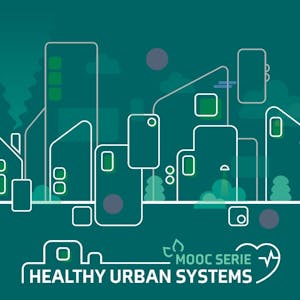This MOOC, offered by the University of Lausanne, is the second part of a comprehensive series on Healthy Urban Systems. Participants are recommended to complete Part 1 before progressing to this module, which lasts 4 weeks and consists of two modules of 2 weeks each, with 2 ECTS credits available.
Throughout the course, learners will delve into theories of complexity, different methods of modeling including individual (ABM) and aggregated (dynamic systems), and the practice of holistic systems modeling using the Holistic System Analysis & Modelling© software. Additionally, the modules cover theoretical frameworks for conceiving models of urban health systems and tools for modeling, including an introduction to the Holistic System Modeling with eight iterative steps.
Certificate Available ✔
Get Started / More Info
This 4-week course comprises two 2-week modules. Participants will explore complexity theories, modeling methods, and the practice of holistic systems modeling, gaining insight into urban health systems and tools for modeling.
General introduction to the MOOC, instructor's list, and glossary
Test for system logics and ecopolicy
Gain understanding of the processes behind urban health and explore frameworks, theories, and models related to fundamental concepts.
Explore complex systems, urban metabolism, and urban ecology, and understand concepts of self-organization and emergence
Delve into scaling effects in cities and cognitive processes related to urban health
Explore operational frameworks for modeling urban health and participatory approaches
Introduction to the Systems Modelling Framework of crossed 17 SDGs and different methods of modeling
Understand the playful approach and presentation of different models, such as WHO AirQ+ and the HEAT Model
Introduction to holistic system modeling and its eight iterative steps, including visualization of effect system and development of measures with If-then scenarios and simulation
Gain insight into the biocybernetic evaluation of sustainability and viability and receive a tutorial for the modeling tool
Quality Improvement in Healthcare focuses on understanding and applying quality improvement methods in healthcare settings, integrating theory and practice with...
This Teach-Out offers a comprehensive exploration of Extreme Risk Protection Orders (ERPOs) as a civil approach to preventing gun violence. Join experts to understand...
Instructional Methods in Health Professions Education provides an interdisciplinary approach to improving teaching skills for health professionals, focusing on educational...
This course delves into simple regression analysis in the context of public health, equipping learners with the skills to interpret and apply these methods to real-world...